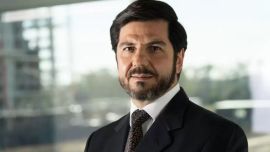Normally a presence is more significant than an absence yet President Javier Milei’s decision to skip the Mercosur summit in favour of his Independence Day fanfare does more to compromise Argentina’s future than the photograph with 18 gubernatorial signatories of his 10-point pact does to advance it. Whether or not that wish list translates into the “change of epoch” so grandiosely announced in Tucumán remains very much to be seen but the planet is changing in the here and now beyond any doubt and Mercosur offers a much broader launching-pad for entry into that reality. The strife-torn trade bloc might need a “shock of adrenaline” to realise its enormous potential, in the words of Foreign Minister Diana Mondino, but depriving the summit of President Milei’s vibrant presence does not seem the best way of administering that injection.
It would be extremely premature to define the Tucumán pact as either a success or a failure at such an early stage but what can already be said with some certainty is that both failure and success pose problems for Milei. Failure obviously enough and all the more so because most of the 10 points are up to the national government, not the provincial governors, so that any flop would be seen as his more than theirs. Yet success could also present problems of image from the presidential champion of the common man wooing and being in hock to such archetypal members of the “caste” as provincial governors.
While isolationism has been a chronic flaw of Argentine presidents, it would be wrong to group Milei in that category but his international vision does not include a Mercosur clearly in need of a rewind among its priorities – after overrating the rise of the far right in Europe (five of the 650 House of Commons seats in Britain and 142 of the 577 National Assembly seats in France’s ballottage in this month’s voting across the Atlantic), a rise which in any case seems to more to hinder than help any Mercosur-European Union agreement, Milei seems to be taking for granted the triumph of Donald Trump in the United States come November. Yet even if that transpires, another half-year will pass before Trump takes office with no immediate release of the funds which Milei believes necessary to bankroll the end of capital controls, without which no exit from the ongoing recession is imaginable – can the libertarian’s impressively persistent popularity hold out until then?
Despite a shrinking percentage, Brazil remains Argentina’s leading trade partner and this should weigh heavier than Milei’s evident distaste for his Brazilian colleague Luiz Inácio Lula da Silva. Brazil bulks large not only regionally but also globally – among the world’s top 10 economies, it even outranks two G7 countries. Milei is thus clearly holding economic recovery back by distancing himself from his giant neighbour and yet smoother relations between Mercosur’s two dominant partners have not always been positive. The clout of the Greater Buenos Aires and São Paulo industrial lobbies has led to a protectionist slant stubbornly defending a common external tariff averaging 14 percent – perhaps in tune with the world of 1991 when Mercosur came into being (when tariffs averaged around 15 percent globally) but hopelessly behind the times in today’s planet where over two-thirds of trade is duty-free and most of the rest below four percent.
Squeezed out by the two regional giants more committed to international commodity than regional trade, summit hosts Paraguay and Uruguay actually understand this better than their big brothers, on a constant outlook for bilateral free-trade agreements with a distinct lack of them at Mercosur level, but this only adds to the tension within this bloc. Nevertheless, despite losing most of the arguments due to their status as junior partners with their industries virtually dismantled, neither Uruguay nor Paraguay are showing the least inclination to leave the Mercosur straitjacket, both fully participating at the summit in the custom union’s Asunción cradle.
But perhaps in the end Milei is doing Mercosur a favour with his absence by showing the fragility of depending on presidential summits for its decisions and policies – Mercosur sorely needs a conflict resolution mechanism and beyond that a broader range of institutions with Parlasur clearly insufficient so that perhaps it might even aspire to a common currency like the euro, which would solve many of its problems. Yet for now there would seem to be more damage from Milei’s absence from Asunción than benefits from his exuberant presence in Tucumán.


















Comments